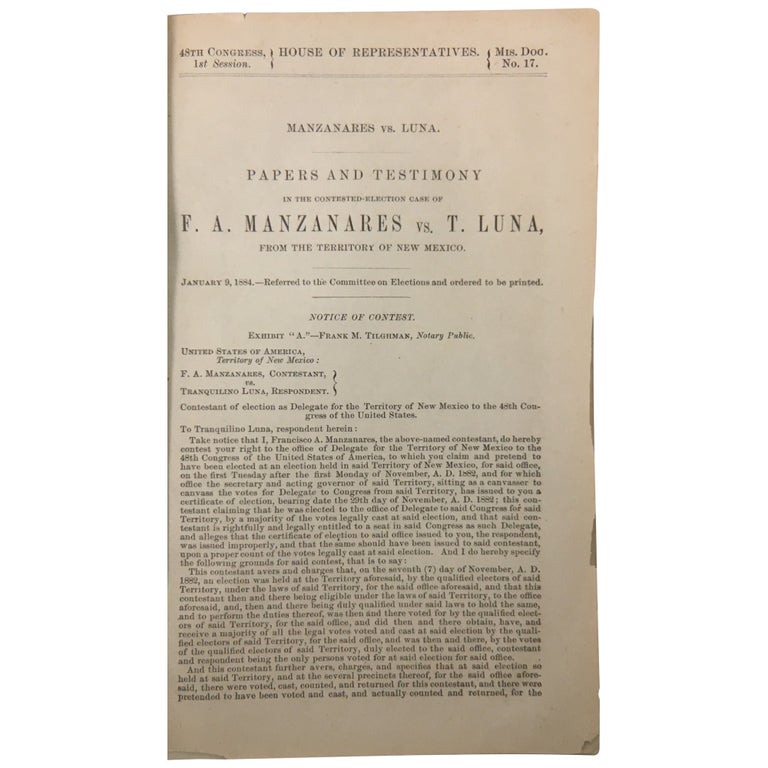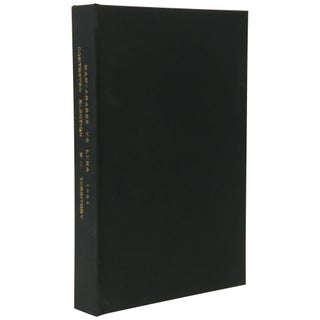"We call everybody Americans who are not Mexicans"
Manzanares vs. Luna. Papers and Testimony in the Contested-Election Case of F. A. Manzanares vs. T. Luna from the Territory of New Mexico
Notes: A scarce look at nuevomexicano life in the mid-19th century. Very few accounts by Mexican Americans are known from the nineteenth century and much of what survives was written later. However one seldom-tapped resource are the records of the New Mexican contested elections for the House of Representatives, which include testimony from many residents. The purpose of these reports was to gather facts about voting irregularities, but in the process, the attorneys for the candidates elicited much detail about nuevomexicano life, culture, and business. The depositions are just a snapshot in time but they provide details rarely found elsewhere in the contemporary record.
Despite losing the 1883 election to the House of Representatives by more than 1,000 votes, the Democrat Francisco Antonio Manzanares successfully challenged the re-election of the Republican Tranquilino Luna. The investigation took more than a year and by the time the House decided to award the non-voting seat to Manzanares, Luna had served half of his second term. Manzanares held the office for just one year and then declined to run again.
In his effort to overturn the election results, Manzanares was represented by José Francisco Chávez, one of the most prominent 19th century New Mexicans, who had some years earlier won the delegate's seat in the House by contesting an election.
Much of the testimony reprinted in this volume has to do with connecting voters on the rolls to the people who actually voted. There is a great deal of confusion about names and nicknames. Among the interesting cultural details are the references to "Americans" (Anglos) and "Mexicans" (Latinx New Mexicans), a distinction made by members of both groups. As one witness explained, "We call everybody Americans who are not Mexicans" (p. 151). Another witness, who lived in Valencia County, south of Albuquerque, differentiated between the territory of New Mexico and the rest of the country, testifying, "I have lived [in Valencia] all the time, except about a year and a half while I resided in the States" (p. 234).
Chavez asked another witness about intermarriage: "Q: Is it not a fact that half-breeds raised in a family take the name and appellation of the family in which they are raised...? A: Yes, that is a fact." (p. 105).
One particular source of confusion was the practice of giving the same name to brothers. The judge broke in at one point to ask, "Q: How are these two Francisco Chavez distinguished. A: One is called Francisco Chavez 1st and the other Francisco Chavez 2nd." It is suggested to the witness that naming traditions are apt to cause confusion, to which he replies, "I think not." (p. 110).
344 pages. 48th Congress, 1st Session. House of Representatives. Mis. Doc. No. 17.
Edition + Condition: A very good copy (paper tanned) in a modern cloth binding, stamped with the title on the spine.
Publication: Washington DC: House of Representatives, 1884.
Item No: #35566
Price: $500


